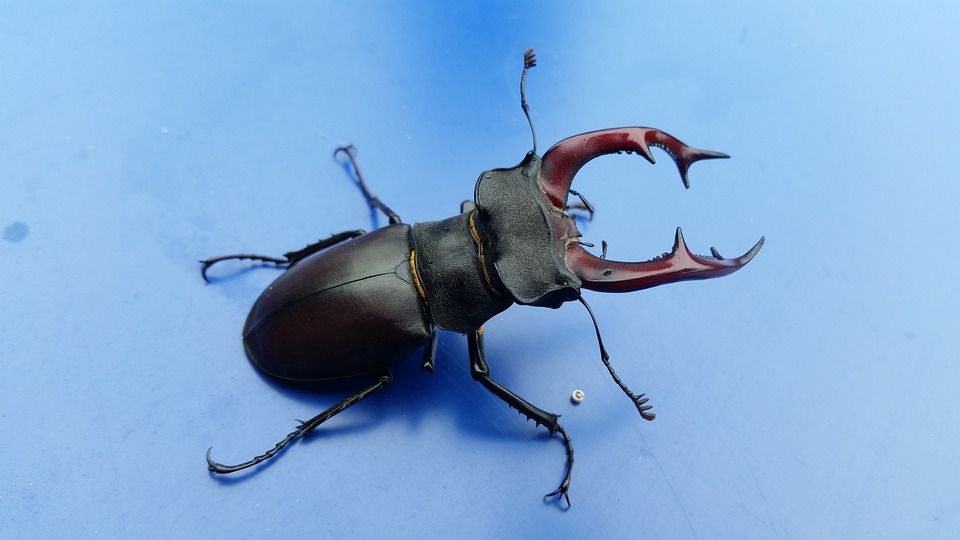For almost the first time in about 50 years, the largest beetle found in Europe, the stag beetle (Lucanus cervus), has been discovered in the Danish nature.
The nature authorities, Naturstyrelsen, revealed that four stag beetles – two males and two females – have hatched in Dyrehaven Park just north of Copenhagen after beetle larvae were released four years ago as part of a breeding program.
“The stag beetle is a fantastic insect that can grow to almost 10 cm in length and make noise like a lawnmower,” said Dyrehaven Park forester, Hans Henrik Christensen.
“It has a life cycle during which it lives five years as a larva underground before metamorphosing into an adult beetle. It’s been four years since we released larvae in different places in Jægersborg Dyrehave, and it is these larvae which are now turning up as adults beetles a year before expected.”
Aside from a sensational find in 2008, not a single stag beetle has been seen in Denmark since about 1970.
The beetle, which thrives in habitat consisting of dead wood and sunlight, was also introduced in adult form in Dyrehaven, where there are lots of old oak trees and dead tree stumps.
READ MORE: Bluefin tuna returns to Danish waters
Giant in the depths
In related news, the Blue Planet aquarium in Copenhagen added an interesting species to its collection this week.
It may look like a woodlouse on steroids or something out of a science fiction film, but the giant isopod actually resides at the bottom of the ocean at depths of up to 2.5 km where it is frigid and dark.
They giant isopod can grow to 75 cm in length and spends most of its time waiting for scavenge for food on the sea floor. They’re not the most mobile species in the world, only moving when eating – which can be rare as it can go without food for years.
“When they find a carcass at the bottom, they really go to town and eat until they can’t move. They practically lay there with their legs stretched out on all sides and digest the food, which is why they can go so long without eating,” said Lars Skou Olsen, a curator with the Blue Planet.
As its name suggests, the giant isopod is the biggest of its kind – the most common of which is the common woodlouse.
The giant isopod (see video below) will be part of a special exhibition about the deep sea which will run from July 1-August 27 and also include spiny king crabs and slime eels.















